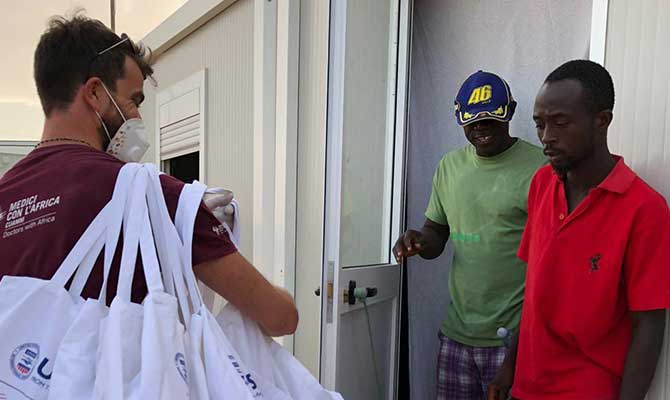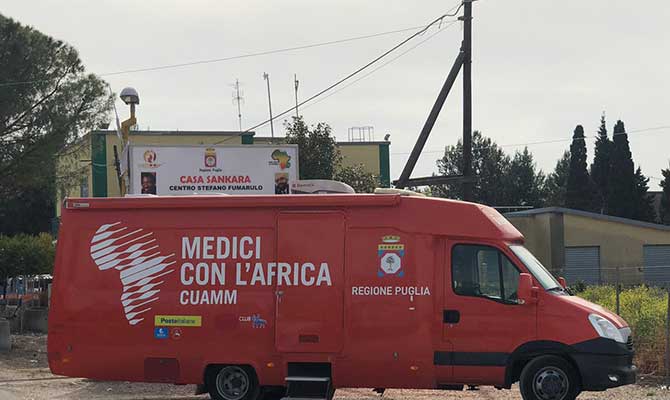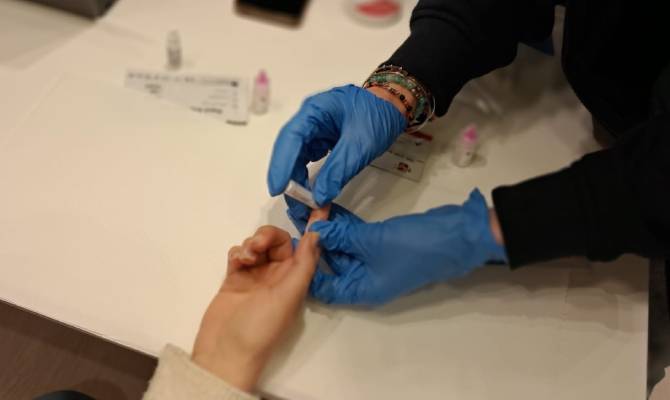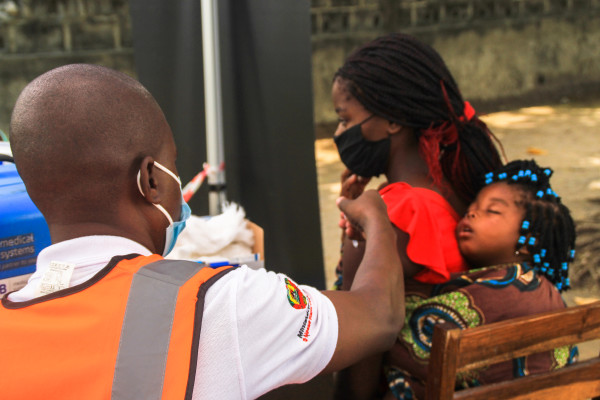THE PROJECT
In 2015, Doctors with Africa Cuamm Bari signed an agreement with the Apulia Region to support seasonal farmworkers in settlements in the province of Foggia, particularly in the populous area known as Borgo Mezzanone. Today, the ‘ghetto’ of Borgo Mezzanone is an abusive agglomeration of shacks, often very precarious and improvised, built next to the Cara, the Centre for Asylum Seekers. Borgo Mezzanone is currently the largest shantytown in the Foggiano area and perhaps in the whole of Apulia.
THE PLACES
The ghettos are located in the Foggia countryside, far from residential centres and services. These settlements fill up with migrants during the harvest season (May-October), with up to 10,000 people, and then gradually empty, with as little as 1,000 people. All of them are characterised by the lack or inadequacy of sanitation, running water, electricitỳ, safe food, and decent housing. The settlements are, for the most part, shantytowns with dwellings built from recycled materials (plastic, cardboard and wood). Rubbish collection is basically non-existent and health care is inadequate. Being present in the last mile and guaranteeing the right to health for everyone, even the poorest and most neglected, is the constant commitment of Doctors with Africa Cuamm. For this reason, the organisation decided to operate even in the ‘last mile’ closest to them. The project involves a health team which – on board a mobile clinic (a camper van) provided by the Region – travels to these settlements during the weekends to shorten physical and cultural distances and offer health examinations and check-ups to a population of more than 1,800 people (1,200 in the Borgo Mezzanone ghetto; 150 at Casa Arena and about 500 at Casa Sankara).
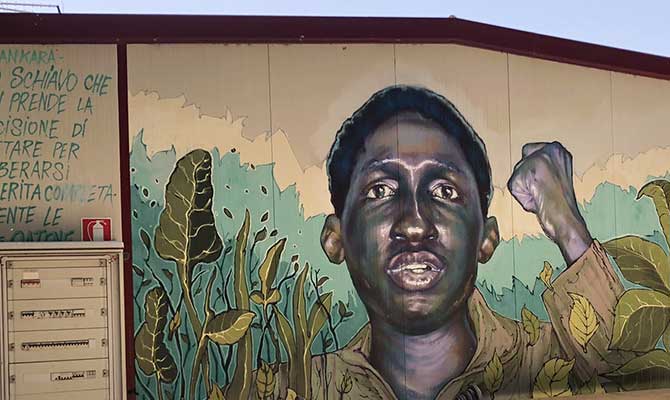
ACTION
From November 2015 to December 2019, Cuamm’s activity guaranteed 4,600 visits, provided by a health team working three Sundays a month. The health needs identified are those typical of farmworkers subjected to heavy, exhausting and tiring work, such as: osteoarticular pain, fatigue syndrome, as well as dental caries, sporadic enteritis, febrile episodes, skin and urinary infections.
HIV SCREENING
From June 2019 to January 2020 (8 months), an HIV-diabetes-hypertension screening campaign was also conducted (500 rapid tests distributed), involving migrants living in the Pista ghetto and Casa Sankara settlements in San Severo. A socio-demographic questionnaire was administered to all participants, which also tested their blood pressure and blood glucose and underwent a rapid HIV blood test. 287 were screened for HIV, mainly men from West Africa, East Africa and the Middle East (the most represented countries were Senegal, Gambia and Nigeria) aged between 24 and 34 years. None of the subjects were found to be HIV-positive.
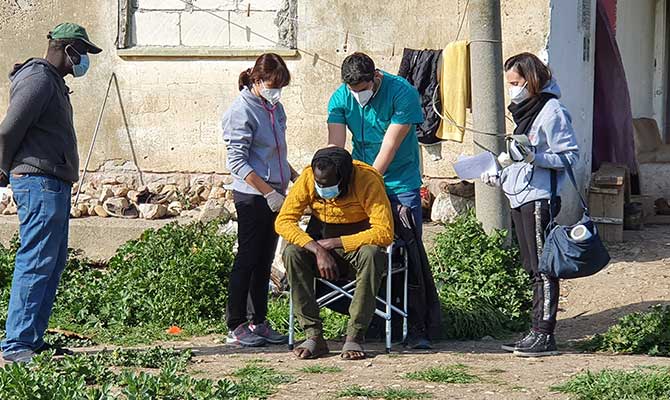
COVID19 AND THE SU.PR.EME PROJECT
In this context, the new Covid-19 pandemic comes into play. In January 2020, the Cuamm team in Bari was involved by the Apulia Region to raise awareness, inform and prevent Covid-19 outbreaks in ghettos. With regard to the health sector, Cuamm became active in some of the actions of the SU.PR.EME. Italy Programme. These healthcare actions were coordinated by AReSS Puglia, with direct intervention in the field by ASL Foggia, assisted by three third sector organisations – InterSOS, CUAMM and SoliDaunia. As of 1 April, eight settlements hosting migrant workers had a permanent clinical and socio-healthcare support centre in the province of Foggia. The medical team of Doctors with Africa Cuamm Bari was present in the territory, during the weekends, with the direct assignment of monitoring and managing farmworkers in the regional guesthouses of Casa Sankara and Arena, in the province of San Severo. These were temporary facilities built from a container, which accommodated four people. In total, the maximum capacity was 650 persons (500 in Sankara, 150 in Arena). Every 4 containers had a prefabricated unit with hot water and a communal shower. At the same time, one meal per day is offered to each resident. Here, Doctors with Africa Cuamm Bari offered basic health care and referred patients to more specific treatment when necessary. In addition, they triaged as many users as possible, and informed and advised the population on the correct hygiene rules to avoid the spread of Covid-19. From April to 20 December, 72 field trips were carried out (on Saturdays and Sundays), where about 1,041 people were triaged and 634 medical records were registered. To date, 28 people potentially positive for Covid-19 have been reported. Later, at the beginning of August, two new intervention sites were assigned to Doctors with Africa Cuamm: Borgo Cicerone (San Marco in Lamis) and Pozzo Terraneo (Cerignola). These were farmhouses, very isolated and close to the places of work. Each farmhouse contained about 10 people of the same nationality. They had a contract and regular residence permits, still they were living in an area without running water and electricity. Each intervention site has about 100 people each. The project’s staff included a total of 25 people, consisting of doctors, nurses, social and health workers, cultural mediators and drivers. Each shift implemented up to 5 people, who travel to the designated intervention sites on board of the mobile clinic. In addition – thanks to the support of the United States Agency for International Development (USAID) – since August, Doctors with Africa Cuamm was able to guarantee the distribution of hygiene and food supplies to 500 people a month.
THE COMMITMENT CONTINUES WITH UNHCR
From September 2022, thanks to a collaboration with UNHCR, a new intervention started: ‘SEEDS: SCREEN- EVALUATE- EDUCATE- DEVELOP-SUPPORT. Putting survivors at the centre: improving health conditions of asylum-seekers, refugees and stateless people and prevent and respond to gender-based violence (GBV) in informal settlements in Apulia”. The project aims to monitor the health status of the informal settlements’s residents in the province of Foggia, with a special focus on victims of gender-based violence. The entire health team was trained to reach, train and inform the target population (asylum seekers, refugees) on their rights, through one-to-one and group awareness-raising actions. In the last few months of the year, 453 basic medical examinations were carried out. Of these, 26 people were referred for specialist examinations and taken into the care of the national health system. Finally, 187 persons identified as being at risk of violence, were informed of their rights.
